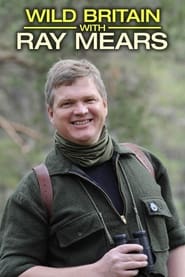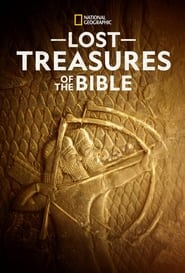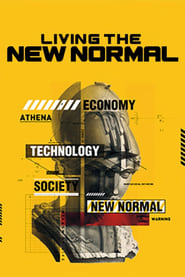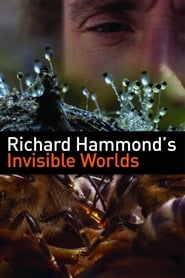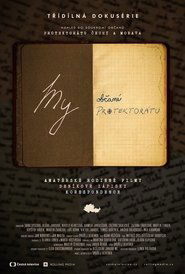Documentary TV Series - Page 355
-
IMAX: Extreme Adventure Collection
2016
Experience breathtaking scenery, heart-stopping action and the origins of the universe like you’ve never seen it before in these three features: Tornado Alley, Grand Canyon Adventure: River at Risk and Hidden Universe. -
The Battle for Justina Pelletier
2022
Explore the story of Justina Pelletier, a 14-year-old girl who entered a Boston hospital with a mysterious set of symptoms and quickly became a ward of the state, leaving her family in disbelief. The events that followed inspired an anonymous computer hacker to take matters into his own hands and sparked a debate about parental rights, medical child abuse and the gray areas in b -
Follow the food
2019
Follow the food
2019
Follow the Food examines the biggest challenges facing the world food system, from climate change to malnutrition, and looks at some of the solutions to overcome them. -
Charity Jam
2005
Charity Jam
2005
-
Lost Treasures Of The Bible
2024
star 7This immersive series follows archaeological teams across the Middle East as they embark on a new season of excavations, uncovering the cities and civilizations featured in the Bible. From the lost city of Exodus in Egypt to the epic Tower of Babel in Iraq, their discoveries shed new light on the Bible’s most famous stories. Stunning CGI and embedded cameras reveal treasures buried for millennia. -
LIVE: Summer on the Farm
2021
Helen Skelton and Jules Hudson host a week of live programmes from Cannon Hall Farm in South Yorkshire, run by brothers Rob and Dave Nicholson. -
Sherri Papini: Caught in the Lie
2025
star 8Sherri Papini, who faked her own kidnapping, breaks her silence, revisiting the lies, secrets, and shocking fallout of a hoax that captivated the nation. -
The Ferragnez
2021
The Ferragnez
2021
star 6.5Tells the extraordinary life of Chiara Ferragni and Fedez. An authentic tale that unveils the behind the scenes of one of the most followed couples ever and the most intimate moments of a young family that passionately fights for their dreams to come true. -
Living The New Normal
2020
Delivering influential speeches from experts to look beyond the Post-Corona World. -
Combat Zone
2007
Combat Zone
2007
From the streets of an American city under siege, to the far-flung jungles of Vietnam or the deadly desert towns of Iraq, modern warfare is all about cutting-edge strategy, the latest weaponry and soldiers laying their lives on the line to overcome the enemy. Combat Zone takes you behind the lines of engagement of thirteen hard-fought armed conflicts and tells the true stories of the tactics, the firepower and the heroes who risked everything. Historical footage combined with gripping first-hand accounts from soldiers and analysis from military experts puts you right in the action. -
3 secondes
2023
3 secondes
2023
-
Waterfront Cities of the World
2011
As seen through the eyes of world-famous photographer Heidi Hollinger, we set off to discover vibrant port cities and capture their true essence and soul. Settled centuries ago when boat travel was the only means of communication, these ports have developed into commercial and cultural metropolises, rich in their unique history. Native and new residents alike share with us the love and charm each city has to offer. -
Richard Hammond's Invisible Worlds
2010
star 7.3Using state-of-the-art technologies, Richard Hammond goes beyond the limits of the naked eye and explores the hidden secrets of the invisible world around us. -
My, občané Protektorátu
2024
Diaries, correspondence and family film recordings reveal a unique view of the life and privacy of the citizens of the so-called Protectorate of Bohemia and Moravia… Young documentarian Ondřej Veverka approached dozens of witnesses of the protectorate times and their descendants to share unique film recordings and written testimonies with him from that time. The result is a three-part documentary that provides a unique perspective on the protectorate. At that time, perhaps more than ever, amateur cameras noticed ordinary everyday things, small joys and ordinary life. Perhaps so that one can at least for a moment succumb to the illusion that the world is actually still in order. But soon tragedy entered these shots as well. -
Megacitys - Wenn es Nacht wird in ...
2024
Glittering facades, vibrant life, and people facing the daily struggle for survival. ZDF correspondents each profile a megacity within their reporting area. How do people celebrate, laugh, and love in such a city? How are problems like housing shortages, food supply, transportation, and climate change solved – in metropolises with over ten million inhabitants? -
Mafia Connection
2017
Mafia Connection
2017
-
Unauthorized Biographies with Peter Graves
1993
The lives of Elizabeth Taylor, Elvis Presley, John Gotti and Madonna are exposed with a candor and honesty never before seen in this provocative series.




